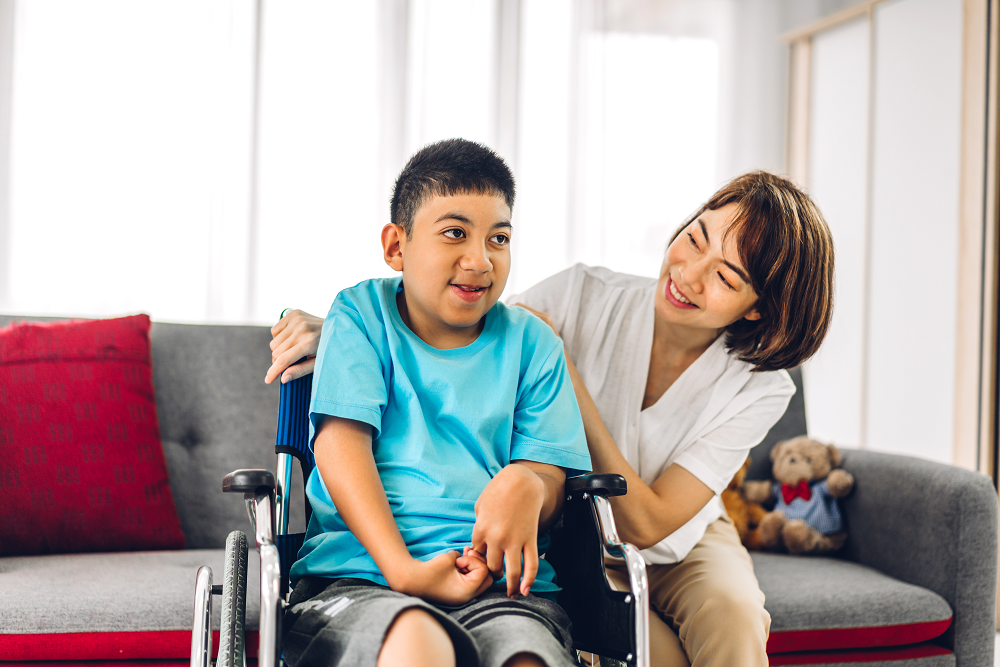The Benefits of Occupational Therapy in ABI NDIS Programs
Acquiring a brain injury (ABI) can have a significant impact on someone’s life by affecting how they move and think. The National Disability Insurance Scheme (NDIS) provides various ways to support people with ABI and highlights the importance of occupational therapy. This specific type of therapy is essential for helping individuals become more independent and enhancing their overall well-being. Through personalised treatments and strategies, occupational therapists assist individuals in overcoming obstacles related to ABI, offering optimism and strength in the process.
Understanding Acquired Brain Injury
Acquired Brain Injury (ABI) refers to brain damage sustained after birth, resulting from incidents such as trauma, stroke, or infections. This type of injury can lead to disabilities and cognitive impairments, as well as disturbances for the affected individual. Each person’s journey with ABI is unique and demands tailored rehabilitation methods to aid in their recovery process. Recognising the aspects of ABI is crucial for formulating effective intervention plans.
Role of Occupational Therapy
Occupational therapy aims to help people participate in activities that hold significance for them by customising treatments to meet their needs. Therapists evaluate the abilities and obstacles faced by individuals with ABI and create strategies to improve their skills and independence. By focusing on self-care routines such as hygiene practices, grooming habits, communication skills, and movement capabilities, occupational therapy strives to rebuild self-assurance and self-sufficiency. This comprehensive approach takes into account the person’s environment to ensure that the treatments provided are relevant and enduring, particularly within the ABI NDIS framework.
Enhancing Daily Living Skills
In ABI NDIS programs, occupational therapy aims to boost daily living skills by working with individuals to enhance their ability to handle essential tasks such as getting dressed and cooking meals efficiently. By introducing adaptive methods and assistive tools, the therapy fosters improved independence through regular practice and support, leading to increased self-assurance in managing everyday activities and achieving personal milestones.
Improving Cognitive Function
People with brain injuries often experience difficulties with their cognitive abilities, such as memory, focus, and problem-solving skills. Cognitive rehabilitation, which occurs through occupational therapy, aims to address these challenges by engaging individuals in specific tasks and drills designed to enhance cognitive functions. Therapists may employ tools such as memory aids, puzzles, and structured schedules to help improve cognitive abilities. By focusing on cognitive enhancement, individuals can develop clearer thinking patterns and make better decisions, leading to a positive impact on their everyday activities.
Promoting Social Participation
Individuals with acquired brain injury often face challenges with isolation due to difficulties in communication and a decrease in self-assurance. Occupational therapy emphasises the importance of engaging in and being part of the community through activities such as group sessions and role-playing exercises to boost confidence in various situations. By nurturing relationships and improving communication skills, a sense of belonging and overall well-being is enhanced for these individuals.
Addressing Emotional Well-being
The emotional toll of Acquired Brain Injury (ABI) can be deep-seated and overwhelming, causing feelings of worry, sadness, and irritation. Occupational therapists offer assistance by tending to emotional health in addition to aiding in cognitive recovery. By incorporating exercises, stress relief methods, and counselling into therapy sessions, individuals are encouraged to build resilience, which helps them better manage the mental hurdles associated with ABI.
Adapting to Environmental Challenges
The success of rehabilitation for individuals with ABI is greatly impacted by environmental factors. Occupational therapists evaluate home and community settings and suggest changes to enhance accessibility and safety. These alterations might involve adding grab bars, reorganising living spaces, or using technology for communication. Creating supportive surroundings allows individuals to participate actively in their daily routines, reducing the likelihood of accidents and fostering independence.
Collaborative Approach with Caregivers
Care providers play a crucial role in the recovery process by offering assistance and motivation during rehabilitation efforts. Occupational therapy promotes teamwork by engaging care providers in the journey. Proper training and education empower caregivers with the skills to provide effective support. Establishing strong bonds between therapists and care providers ensures individuals with ABI receive comprehensive support that enhances their overall recovery progress.
Empowering Individuals with ABI
The main goal of therapy in ABI NDIS programs is to empower individuals to live fulfilling lives by comprehensively addressing mental challenges. Therapy supports a recovery journey where individuals develop a sense of purpose and learn to adapt to changes while setting realistic goals. Occupational therapy goes beyond rehabilitation; it helps individuals uncover their abilities and look forward to the future.
Conclusion
Occupational therapy plays a vital role in ABI NDIS initiatives by assisting individuals in navigating their recovery from acquired brain injuries (ABI). Using personalised techniques and strategies tailored to each individual’s needs and circumstances, occupational therapy fosters independence and enhances overall well-being.




Post Comment